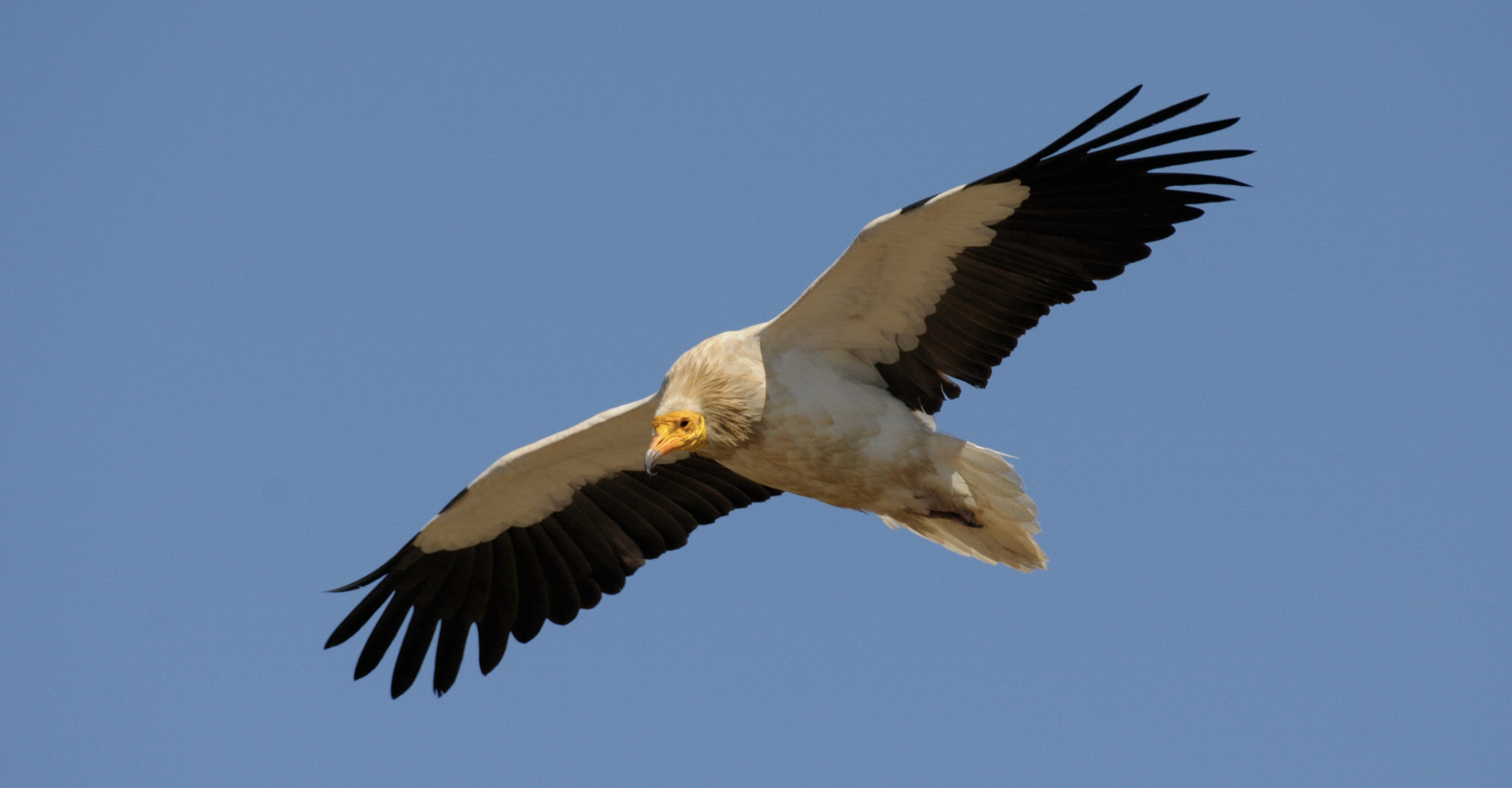The LIFE Return of the Neophron project has tagged a number of adult and young Egyptian vultures from the Balkans, to track their migration and identify threats along the flyway.
Now one of those birds met a tragic end in Niger. When a bird stopped moving in early October near the Gadabeji Game Reserve, the Bulgarian Society for the Protection of Birds contacted The Sahara Conservation Fund for help, which in turn informed their partners from the Niger Fauna Corridor Project and the management unit of Gadabeji Game Reserve to investigate. Thanks to the last signal sent by the transmitter, the rangers from the Game Reserve were able to find the place where the bird had been observed for the last time, 60 kilometres away from East-Gadabeji.
The rangers eventually found the transmitter and the ring of the Egyptian vulture in a tiny village, named Aboussa, and with the help of the village chief and the local community, it was determined that the Egyptian vulture had been poached by two men for bush meat. The local people and in particular the children outlined they had never seen this species before in this area, but they usually observe Ruppell’s vultures, although the 65-year-old village chief had seen formerly this species I the past.
Five years ago, another Egyptian vulture tagged in Greece had been killed in Niger next to Koutous Massif, by a poacher from Nigeria to use its body parts in traditional medicine.
During the trip to find what happened to the Bulgarian-tagged bird, the rangers had opportunity to raise awareness with the local communities about the diversity of the vulture species located in this part of Niger and as well to outline their role as ecosystem services providers. The rangers displayed pictures of the different vulture species, clarified the laws, and provided details about the tagged bird. More generally, the meeting was also a good way to discuss with the local community the scavenging role vultures have, important in a region like the Sahel where there is high cattle mortality due to little use of veterinary drugs to protect livestock from diseases and the low level of sanitation services.
Although one vulture died. Some good came out of this – and it is great to see another example of much-needed transcontinental collaboration between conservationists based in Europe and Africa! A new Egyptian Vulture LIFE project to protect the species along its flyway is now starting, led by the Bulgarian Society for the Protection of Birds.
This new project will contribute in a significant wat to the implementation of several actions of the Vulture Multi-species Action Plan (MsAP) – a global plan for the conservation of 15 species of African, European and Asian vultures, co-developed by the VCF and endorsed last month by the Convention for Migratory Species. Lots of work to do – as the killing of this threatened Egyptian vulture demonstrated, but now we have a blueprint – and the partnership on the ground, to act!
Photo: Bruno Berthémy/VCF


